The Levellers' Mark Chadwick: “Writing on our own, with an acoustic guitar, in the bedroom. That's the best kind of way to write a song”
The frontman talks new record We The Collective, undercover cops and the F word
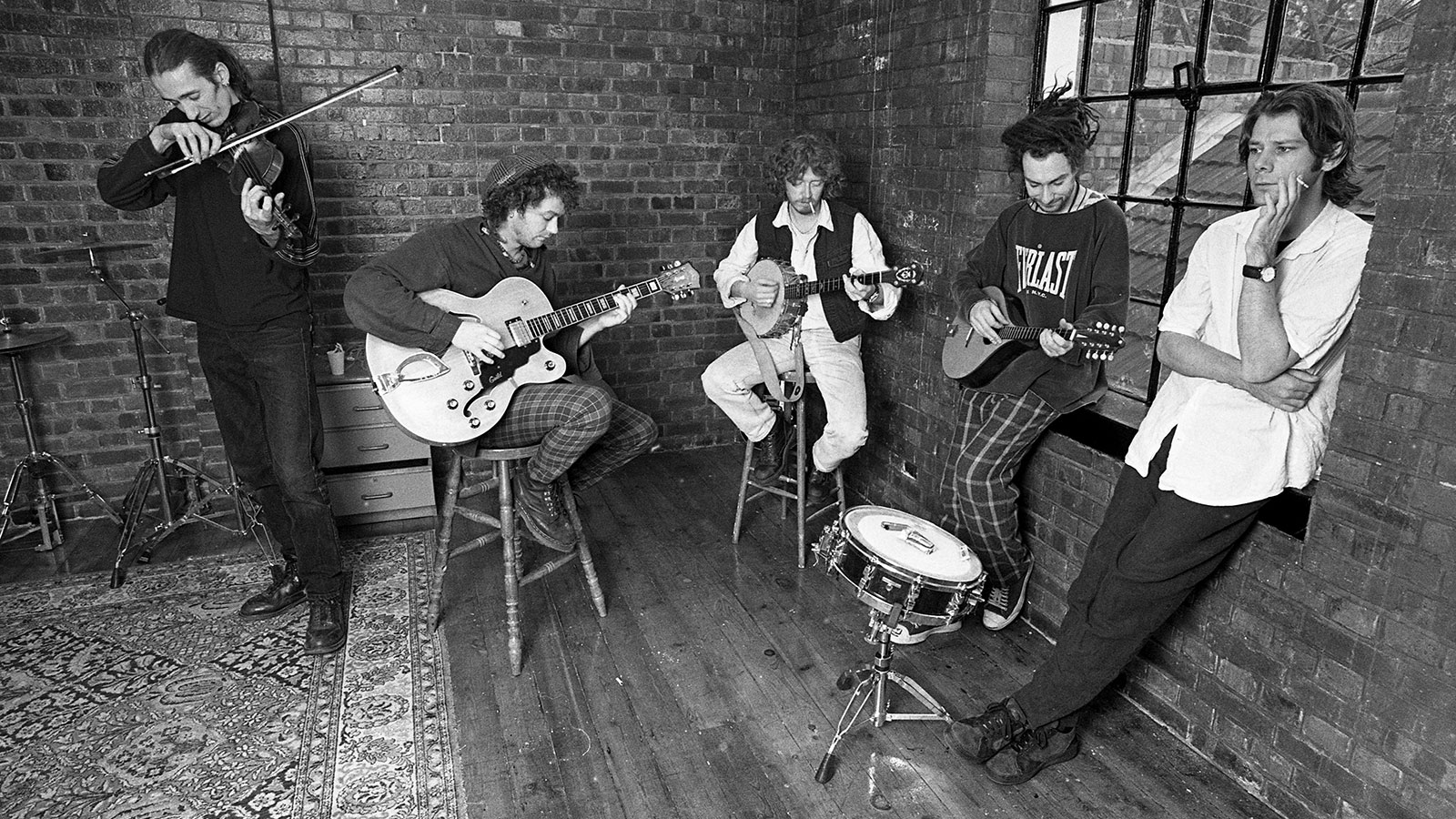
Hated by the music press. Spied on by the police. Battling addiction and an unfashionable image, it's a wonder Levellers ever went on to become the leaders of a counterculture phenomenon. But 30 years since their formation, Levellers are back with an all-acoustic new album and they're loving music more than ever.
“I didn't think I'd be alive in 2018,” says Levellers frontman Mark Chadwick on whether he expected the band to still be going after 30 years. “At 21, I thought we'd be lucky to get five years out of it. The fact that I'm nearly 52 and still doing this is a bit of a shocker. But there you go, time passes so quickly.”
The years may have flown by, but Chadwick is definitely still alive and Levellers are going strong. In fact, Chadwick says the band - Jeremy Cunningham (bass guitar), Charlie Heather (drums), Jon Sevink (fiddle), Simon Friend (guitar and lots more) and Matt Savage (keyboards) - enjoys performing live more than ever these days.
The songs in as much as they can be played in any way; by a campfire, by a quartet, or in a rock 'n' roll band
To mark the Brighton folk-punk outfit's 30th anniversary, they have just released new record We The Collective. The all-acoustic album comprises mostly reimagined and reworked classics, plus a couple of new tracks. With the inclusion of a string section, it's certainly Levellers like you've never heard them before - but the guys have definitely pulled it off.
“We're really happy with the end result,” says Chadwick of the album. “When you do something which is, essentially, such a left-hand turn for us, we wanted it to be really, really good.
“Rather than it just being tired acoustic versions of material that we've done before, though, the track listing is not obvious. We've chosen songs that sound better or different with this approach. It draws attention to the lyrics and the nature of the songs in as much as they can be played in any way; by a campfire, by a quartet, or in a rock 'n' roll band.”
The band enlisted legendary producer John Leckie (Radiohead, Stone Roses) to help develop new acoustic arrangements for eight of their previous singles including Liberty, Hope Street and One Way which they recorded straight to tape at the world-famous Abbey Road Studios. They also recorded two brand new songs for the record.
Get the MusicRadar Newsletter
Want all the hottest music and gear news, reviews, deals, features and more, direct to your inbox? Sign up here.
The first new tune, The Shame, deals with the plight of refugees. The hard-hitting song and video certainly don't shy away from the disturbing truth either.
“We decided to tackle the subject exactly because it is a thorny issue; it's horrible, nobody really wants to stare at it,” Chadwick explains. “Levellers have always made people look at things they don't particularly wanna look at, you know? We usually do it in a much more joyous way, but in this particular instance, there's no joy there. It's like, 'This is hard-hitting, this is unpleasant', but it's a statement and there's nothing about it which isn't true. It would bring a tear to a glass eye.”
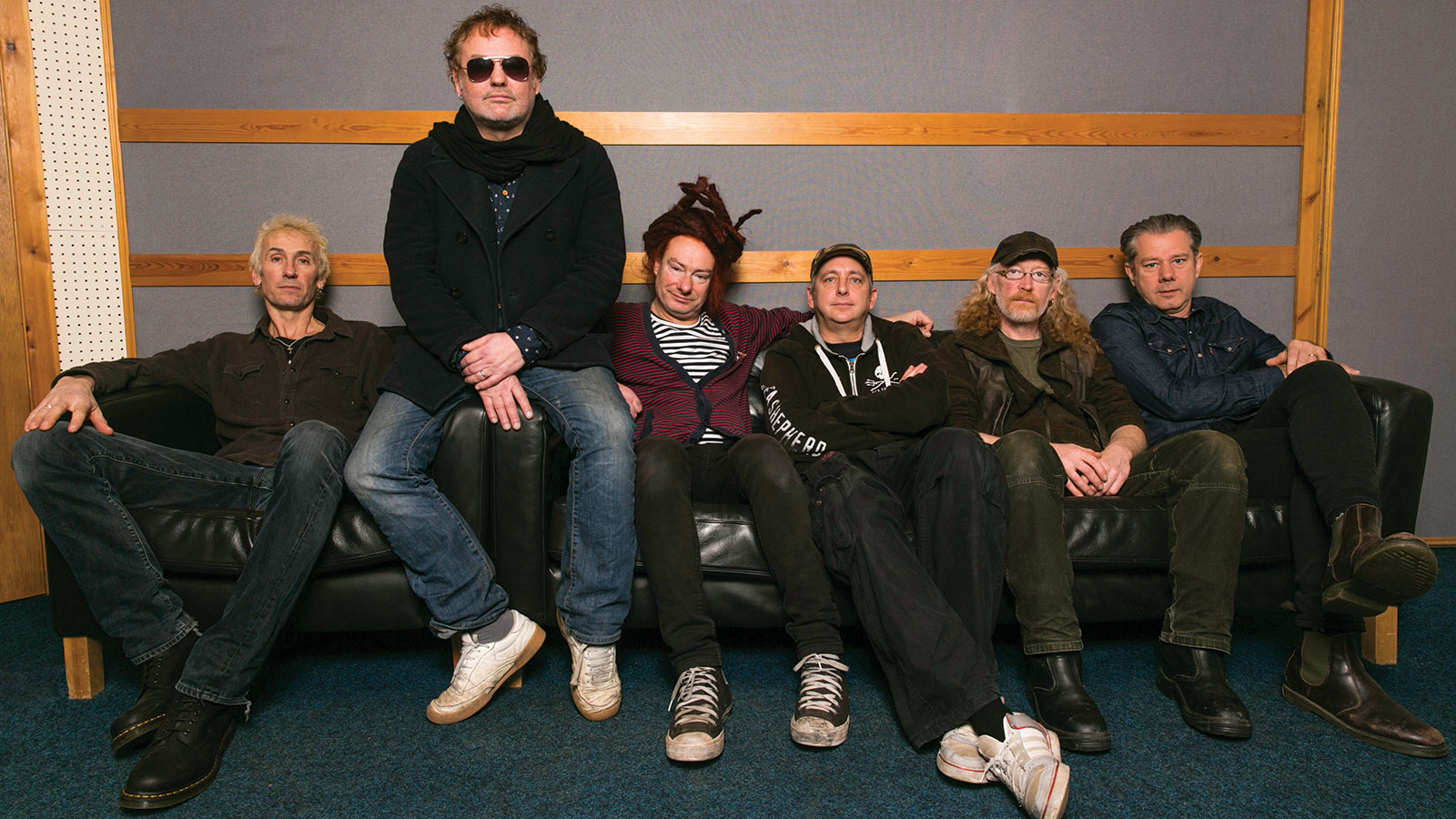
Undercover
The other new one is a tune called Drug Bust McGee, dealing with the issue of undercover police officers. The tune takes inspiration from the Levellers past when the police were so suspicious of the crusty counterculture leaders from Brighton, they went undercover and penetrated their community.
“Drug Bust McGee is based on personal experience and the experiences of others that we know,“ says Chadwick. “There was a period in time in the Levellers' life when it was deemed by the powers-that-be that they needed to infiltrate our organisation and other organisations in the Brighton area to find out what we were up to and whether we were a true threat to the state or not.
“And they did it! They sent undercover policeman who became our friends. Then suddenly, these 'friends' would disappear and we all know why. Some of us had our suspicions, some didn't. They're in your life for a couple of years and then they're gone. In some people's lives, they had relationships and babies - then fucked off. It a crazy abomination which happened and has been highlighted in that song. It was deeply criminal behaviour, on their part. They were doing it all over the country too.”
Generally it was a very positive time. A lot of cohesion between various different, what are now fairly disparate, parts of society
It's easy to forget how influential Levellers were in the 90s; revolutionaries on a quest to change the world through the power of music. Never quite in fashion, the band carved a niche out of the fact that they didn't really fit in anywhere; music for the disenfranchised by the disenfranchised. Travellers, punks, hippies, students, indie kids, all united by disillusionment with the State and the way things were going. Levellers spoke the truth and it caught on fast.
“Generally it was a very positive time,” says Chadwick. “A lot of cohesion between various different, what are now fairly disparate, parts of society. Different groups very much in cahoots with one another to do better things. And having a great time doing it! We had very idealistic dreams, you know? Not being pious, or strict, doing things collectively. It was great. That vibe; thinking we could change things and, actually, changing things on a micro level. We were doing things and trying to make a positive difference.”
In 1988, Chadwick met Cunningham in Brighton pub, The Eagle. Despite getting off to a bumpy start - Cunningham was hitting on Chadwick's girlfriend - the pair soon bonded over shared views on left-wing politics and a passion for drinking. As it transpired, both were in bands and were equally unhappy at those bands’ failure to sing about anything important. Chadwick told Cunningham that he’d written some songs along the lines of their discussion and ended up going round to his house and playing them. His new pal was blown away. A new band was about to be formed. Chadwick and Cunningham recruited Charlie Heather on drums and Jon Sevink - who was the brother of Mark’s girlfriend - on fiddle. With that line-up, the Levellers' infectious folk-punk style was born.
“We never aimed for a particular style, though, it just so happened to turn out that way,” Chadwick remembers. “I came to it from a Roy Harper, Cat Stevens, Simon & Garfunkel, John Lennon style of singular songwriting and we thought we needed a lead instrument so we got Jon in on violin. We didn't wanna get an electric guitar player because guitar solos were out then. But having a fiddle in the sound makes it folkier, so our style kind of developed out of the songs and instrumentation; we didn't design it, the music designed itself.”
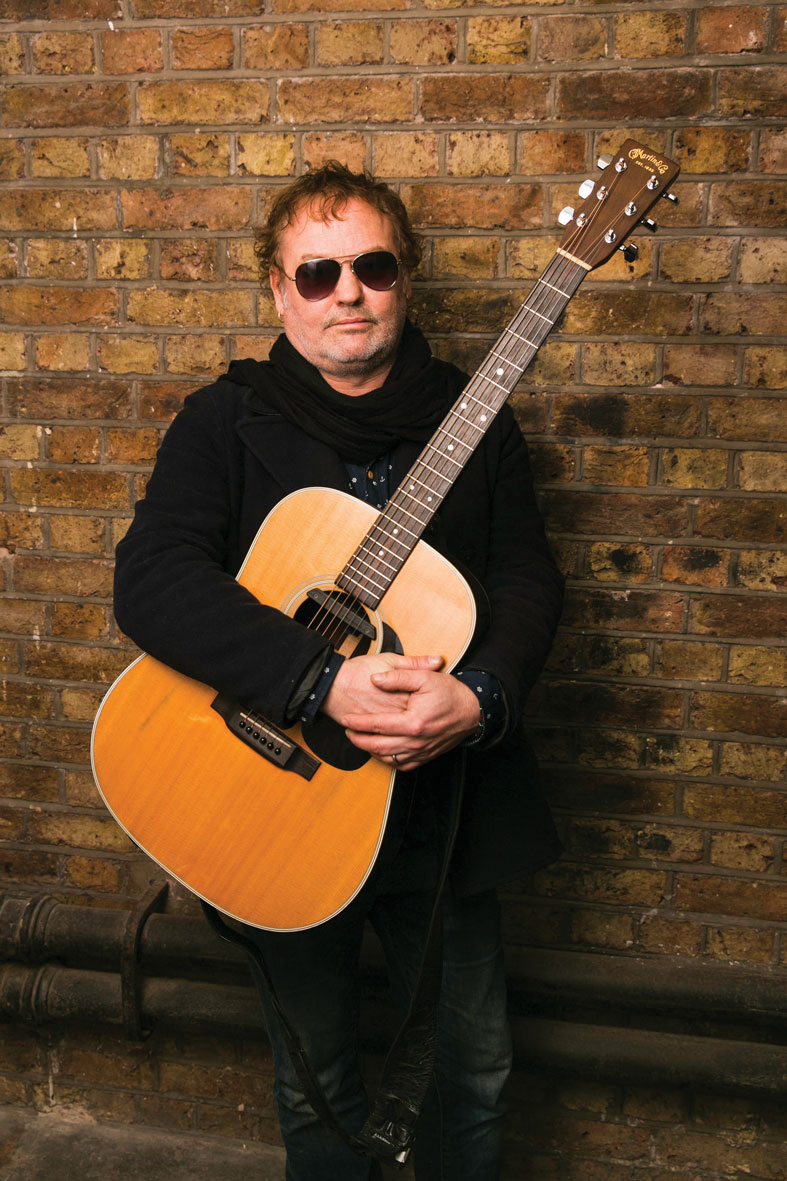
Anti-folk?
Despite accepting the Roots Award by the BBC Radio 2 Folk Awards in 2011, rumour has it that Levellers took offence to being dubbed a folk band back in the day.
“We didn't care,” Chadwick laughs, setting the record straight. “Myself, Jeremy and Jon; we were always into folk music. But it wasn't like the noughties when it was cool. If you said you liked that music in 1988 it meant you were weird, which we were. We were quite happy to go to folk clubs, but we'd get kicked out of them because we didn't fit into folk clubs either. We were suspended somewhere between folk and rock.”
If you said you liked folk music in 1988 it meant you were weird, which we were
Their first two demo tapes were sold at gigs throughout 1988-89 and the band’s reputation quickly grew, along with its expanding army of dedicated followers. They signed to their future manager Phil Nelson‘s small label Hag Records to release the Carry Me EP. Alan Miles later joined the band to play harmonica, guitar and the mandolin and they recorded their debut full length album A Weapon Called The Word, which was released via the French label Musidisc. The debut is one of the few albums known to have gone gold without ever even charting.
When Alan Miles quit the band after the first album, it was to be a blessing in disguise. His departure meant that talented singer-songwriter and multi-instrumentalist Simon Friend, a roadie for New Model Army and a musician well known on the same circuit, could replace him (Friend reportedly even turned down the offer of becoming NMA’s guitarist in favour of joining the Levellers). The line-up has stayed together ever since, with Matt Savage later joining on keyboards. As well as a line-up change, the early 90s also saw the group part with Musidisc after Derek Green (the man responsible for signing the Sex Pistols) discovered them and signed the band to independent label China Records.
With new life injected into the group, they set about recording their seminal album, Levelling The Land. Released in 1991, the album boasted an accomplished set of politically charged folk-rock classics. Despite not making the Top 40, single 'One Way' became an instant live favourite; an ultimate statement of freedom which was quickly adopted as an anthem among followers.
While the fans loved the album, the press was not onboard - and their contempt annoyed the band. While the odd bad review is fair game, the band did not feel that their image fitted the perceived notion of cool at the time. They also suspected the reason that the press resented Levellers was because they had played no part in creating them - the rise of Levellers was organic and self-made. When one NME critic gave Levelling The Land a kicking, Cunningham allegedly responded by sending some shit in a shoe box.
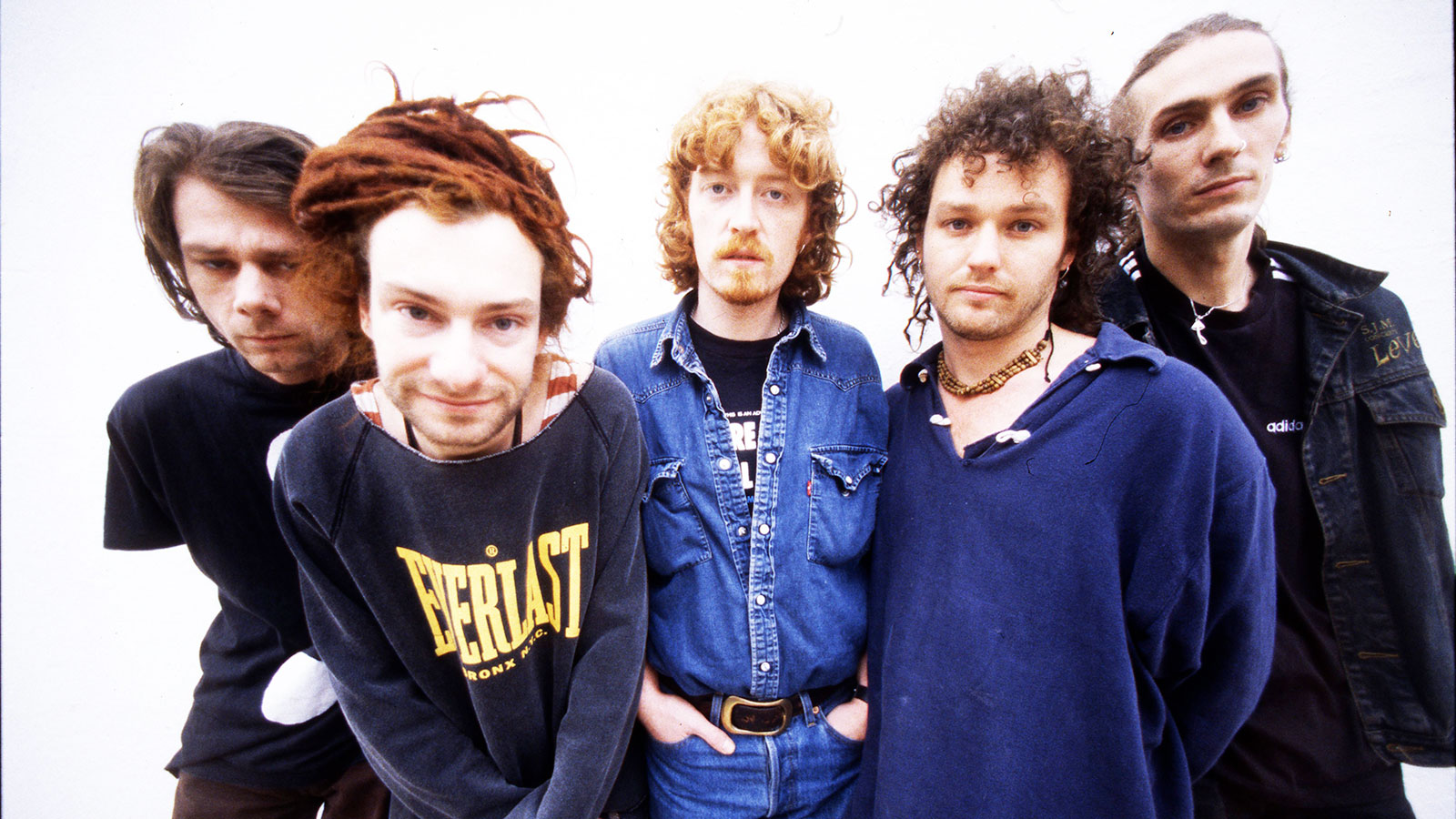
Too big to ignore
When Levellers set about recording their third album, it was amid a dark period in their history. Feeling overworked from excessive touring and suffering from writer's block, the third record was always going to be a slog.
Cunningham was also falling deeper and deeper into heroin addiction. Believing the travelling lifestyle he was part of was becoming less and less of a freedom, he began taking the drug as a means of escape - but soon became dependent on it.
The five friends were beginning to drift apart and creativity was running low. The result was the inconsistent but powerfully dark self-titled album, which reflected the gloomy atmosphere that surrounded them.
The best times are always around when there's a genuine surge in people noticing what you're doing; when people are talking about you
The album continued the band’s ascent, however, shooting to No. 2 in the UK charts upon its release in 1993, with all three singles from it reaching the Top 20. The following year would see Levellers reach the height of their popularity. Despite the press struggling to say anything positive, they became too big to ignore. So, instead of ignoring them, the press simply made the case that Levellers did not deserve to be so popular. It all backfired quite spectacularly.
This was the time for Levellers - they were the most popular band in Britain. Levellers went on to score more gold, silver and platinum discs than any other UK act in the 90s, notching up seven Top 40 albums and 14 Top 40 singles. Their 1994 performance at Glastonbury drew the biggest crowd the festival had ever seen; more than 300,000 fans ignoring every word of the music press. Beautiful.
It was in 1994 that the band purchased a derelict factory in Brighton, named the Metway after the original owners, and created a self-contained headquarters, which they still have today. The buildings house their offices, fan club, rehearsal area, a bar and a recording studio. Hope Street the lead single from Zeitgeist (1995), was the first recording to come out of Metway. When the album was released in September that year it charted at No. 2 in the week of its release. Owing to the success, manager Phil Nelson persuaded China Records to advertise the album on television and it reached No. 1 in its second week on the chart.
The third single from the album, Just the One, gave them their first Top of the Pops appearance, playing the tongue-in-cheek drinking anthem dressed in tuxedos. Just the One was specially re-recorded for the single release, with The Clash's frontman and long- time Levellers hero, Joe Strummer, guesting on honky-tonk piano. It reached No. 12 in the UK.
“There has been plenty of good times,” Chadwick says with a chuckle. “Picking a highlight is difficult. It ranges from the first time we sold out our local venue, The Richmond, in Brighton, two nights in a row on our seventh or eighth outing, to headlining Glastonbury three or four years after that, to hosting our own festival, Beautiful Days, in 2003.
“The best times are always around when there's a genuine surge in people noticing what you're doing; when people are talking about you and saying, 'Actually this band are relevant and doing something cool'.”
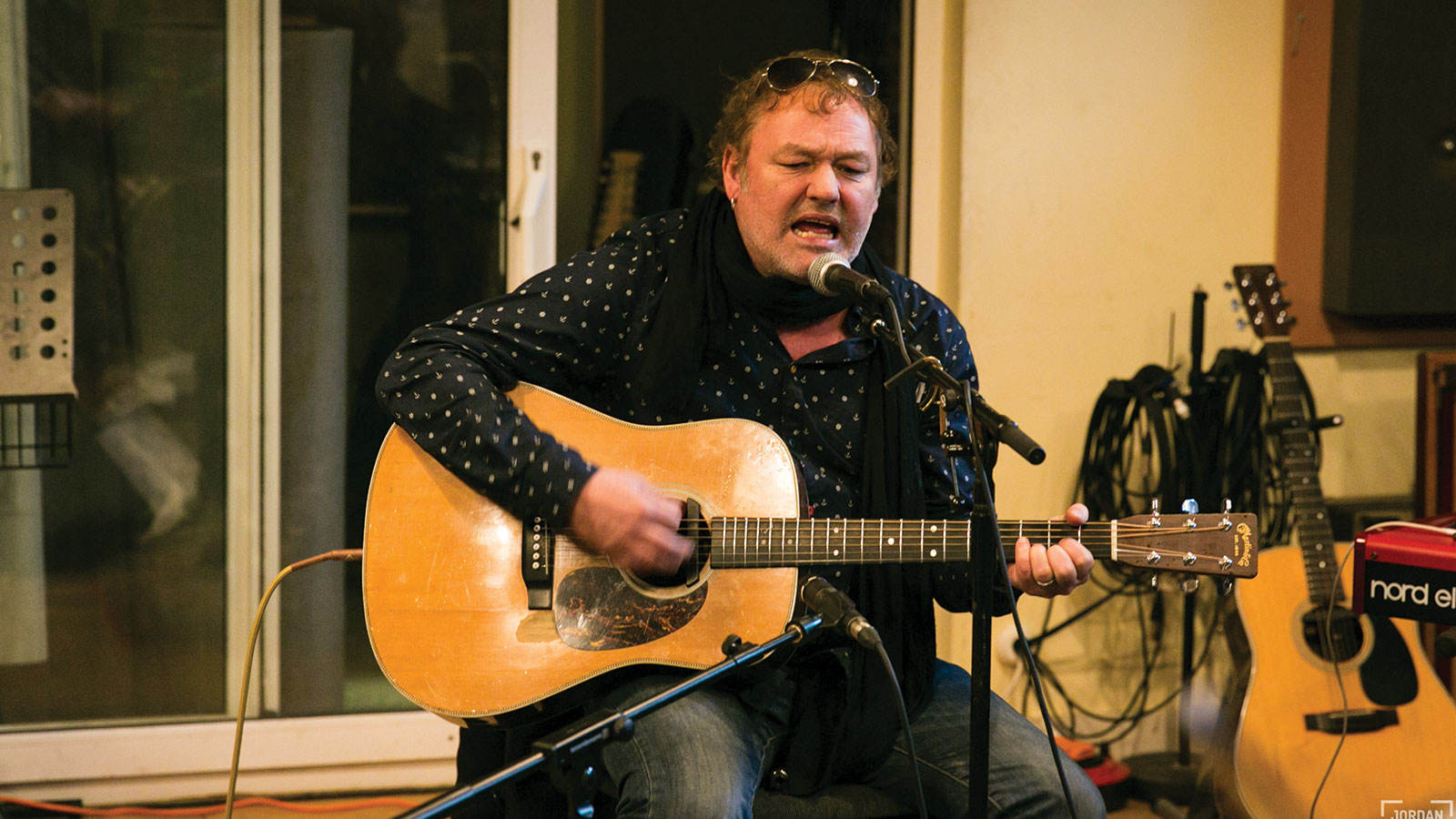
New land
Would Levellers succeed in today's musical landscape? “I would say it would be virtually impossible. I hate that because musicians deserve to eat and have a roof over their heads as much as anybody else does. If they're not making pop music, they're gonna struggle. But there are ways and means of making a living. You're never going to be rich, though.”
“I think the music industry had changed beyond all recognition,” Chadwick adds. “It's so polarised now; it's either pop, legends like U2, then there's everybody else; which is a really broad brush stroke. In a way, I love that because I can listen to music that nobody else is listening to. There's more good music now than there has ever been. But the accessibility, that's what's changed; the way music is sold, or, more to the point, not sold. Music's better, but the medium and how it's sold has gone.”
I bought a Fender acoustic when I was about 16, a proper Fender D-20 acoustic. That was my guitar forever
Chadwick's journey to becoming the leader of a musical movement started on “some rainy fucking Tuesday” in the late 70s when he decided to bunk off school. At the time he was living in Germany due to his dad being in the army. “I bunked off, and on German telly they were showing the whole of Woodstock in the daytime; a three or four-hour movie. I watched the whole of that and thought, 'That's what I wanna do'.
“My dad came back and I said, 'Dad can you get me a guitar?'. My dad was in the military band and they had guitars and the works, so he brought me back a guitar that night. After dancing around in front of the mirror for a couple of years, I thought, 'I'd better learn how to play this'.”
While many cut their teeth on some ramshackle Spanish guitar or a naff Strat copy, Chadwick fared extremely well with his first guitar. “It was a really rare German copy of a Gibson Les Paul Standard with loads of moving parts. It was a beautiful thing. It'd probably be worth a fortune if I still had it. I bought a Fender acoustic when I was about 16, a proper Fender D-20 acoustic. That was my guitar forever, for years and years, until it literally couldn't function anymore.”
These days, Chadwick's favourite is a Martin D-20, which he uses for writing and performing. There's a rare beast in his personal collection, though. “I've got Ralph McTell's old acoustic, a Martin D-20,” says Chadwick. “It's beaten up as fuck; it's been around the houses.”
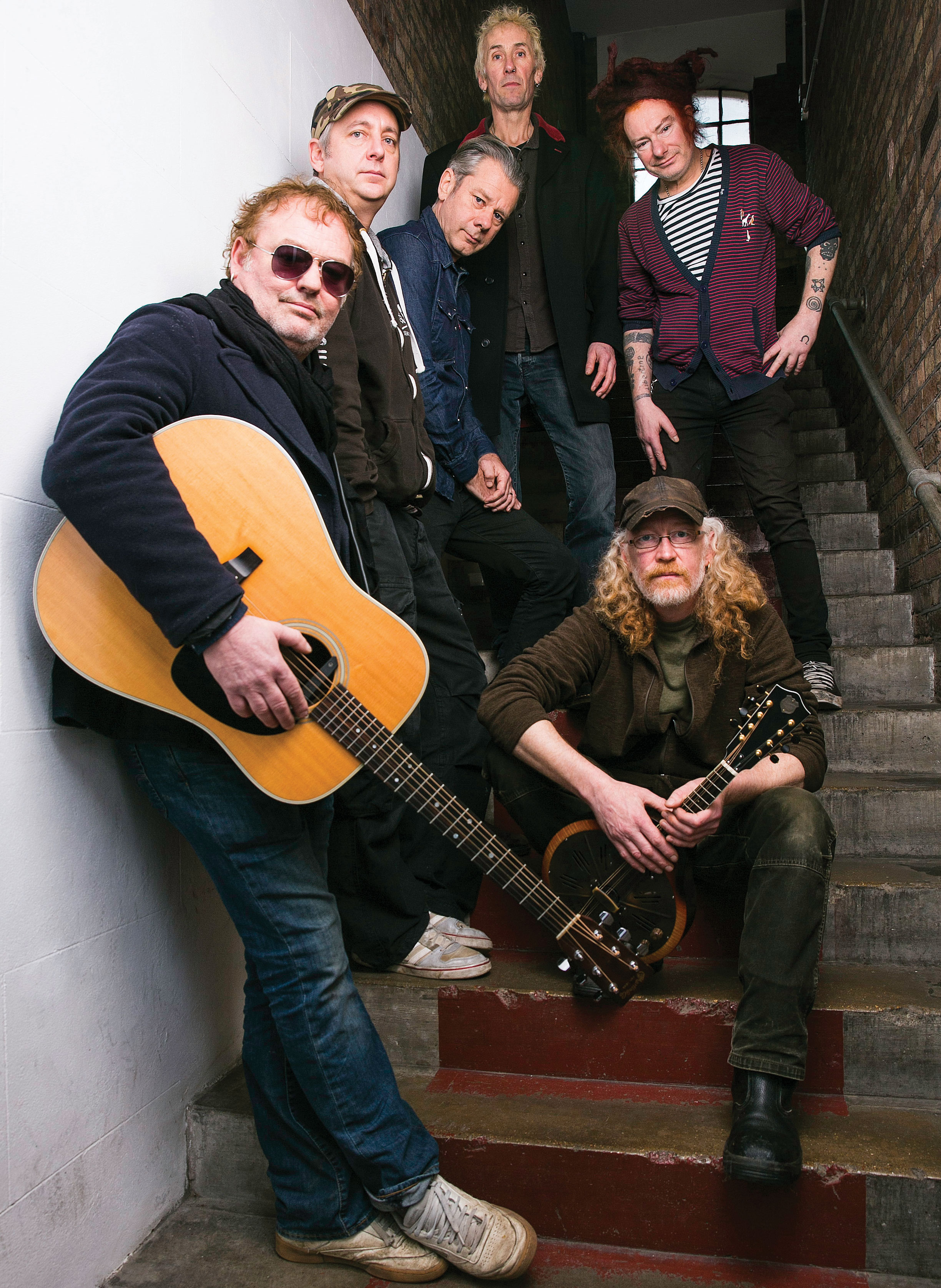
Acoustic roots
When it comes to writing the tunes, Chadwick says there are four approaches that Levellers adopt. “Either I write a song completely, the chords, melody and lyrics, or Simon will do exactly the same thing. Or, we'll use some lyrics from Jeremy and either Simon or I will put the music and melody to it. And occasionally, they come out of nowhere between all of us. The majority come from either Simon or me writing on our own, with an acoustic guitar, in the bedroom. That's the best kind of way to write a song.
There was a point in our career where the gigs got in the way of our lifestyle. But now gigs are our lifestyle
“We've tried many different ways over the years, but it always ends up being a very collaborative thing in the end. If it doesn't work as a collaborative experience, no matter how good the song is, we generally tend not to do it. If I can't explain a song to the band, who else am I gonna be able to explain it to? If they can't get it, nobody else will.“
There are many remarkable things about the Levellers. Their tunes, for one. But, when you meet them (as we were lucky enough to at Metway Studio), it's amazing just how down to earth they all are, despite more than 30 years living the life. However, possibly the most remarkable thing is just how passionate they are about music.
Every year since 2003 they sell all 17,500 tickets to their own festival - the proudly sponsorship-free and affordable Beautiful Days, in Devon - and the band love playing music more now than they ever have.
“I probably enjoy playing and performing more now than ever before, to be honest,” says Chadwick. “There was a point in our career where the gigs got in the way of our lifestyle. But now gigs are our lifestyle. Our level of musicianship is better than it's ever been. We live to be onstage. That's never changed, though; we've always wanted to entertain people and really change the atmosphere of the day by playing a really blinding set. That's what we do. And the only you get the more fun that becomes.”
We The Collective is out now.


“Beyond its beauty, the cocobolo contributes to the guitar’s overall projection and sustain”: Cort’s stunning new Gold Series acoustic is a love letter to an exotic tone wood
“Your full-scale companion. Anytime. Anywhere… the perfect companion to your full-size Martin”: Meet the Junior Series, the new small-bodied, travel-friendly acoustic range from Martin



![PRS Archon Classic and Mark Tremonti MT 15 v2: the newly redesigned tube amps offer a host of new features and tones, with the Alter Bridge guitarist's new lunchbox head [right] featuring the Overdrive channel from his MT 100 head, and there's a half-power switch, too.](https://cdn.mos.cms.futurecdn.net/FD37q5pRLCQDhCpT8y94Zi.jpg)





